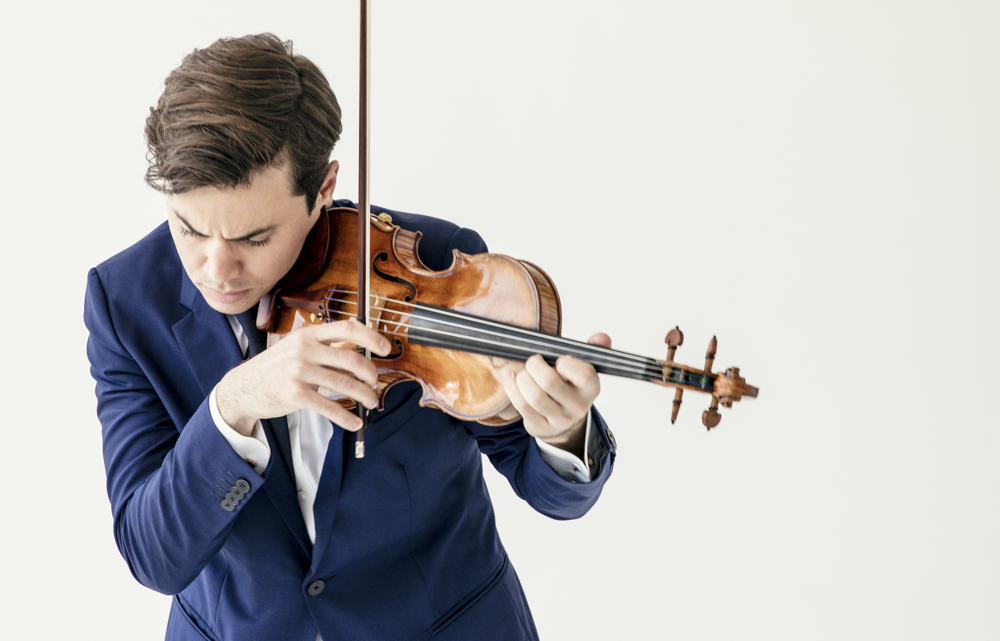Benjamin Beilman
The young American soloist has played the ‘Engleman’ Stradivari since 2016. Here he explains why at first he wondered whether to give it back.
How did the loan from the Nippon Foundation come about?
My previous instrument was a Peter Greiner, which I adored but it was on loan to me from a private patron and he needed it back. Someone recommended that I contact the Nippon Foundation, so I sent in my materials via email and then I didn’t hear anything for maybe three or four months. I remember I was on a recital tour in Australia and I was in a car driving from one city to the next when I got this email saying, ‘Congratulations we have one violin available, the committee has selected you to play it, so let us know when you can come to Tokyo.’

Benjamin Beilman. Photo: Stefan Ruiz
So I went and tried it. They don’t have a concert hall where you can play it so I took it back to my hotel. I was just playing it quietly and I felt that it potentially did not the right characteristics that I was hoping for. I was thinking to myself – am I going to return an instrument? Could I go back and ask for a different one? But I brought it back to New York and I took it to Julie Reed (the official Nippon luthier in North America). She did a few adjustments and immediately it completely opened up and now it has become by far my favourite violin that I have ever played.
How would you describe its sound?
It has unbelievable power. What really sets it apart is that it seems to project over almost anything. Orchestras I play with always remark at how clearly they can hear me both on stage and out in the audience. At times, because it is so powerful, I find it a bit more challenging to manipulate when I’m playing chamber music, when you obviously have to blend much more consciously with the players around you. As with any Strad, it has that angelic sweetness in the upper register, but across the board it has a much mellower, darker, richer hue to the sound than I would typically associate with a Strad. It sounds very complex and sophisticated in all the greatest ways.
Has it changed you as a musician?
Yes, I feel I now have much more faith in the instrument to produce certain sounds and colours, and because it has such a robust tone I feel like I can play sotto voce and have it project over an orchestra. The characteristic of the sound is so sophisticated that often I barely have to think about producing a sound and it automatically produces exactly the right colour that I want. Sometimes I struggle to make a more ‘beastly’ sound. Often I play the Sibelius Violin Concerto and there are some very dark, brutal, almost animalistic sounds that you have to produce in that piece, and the Strad makes it quite difficult to make something kind of gruff and growling.
When does the loan period end?
It’s a seven-year loan, so I have it for another four and a half years. As you can imagine, I’m loving every moment I have with it and I am very much dreading the day that I have to give it up. Four and half years seems like a long time, but in the life of an instrument it’s a very short time. I’m trying to enjoy everything I possibly can right now.
Your playing is often described as quite robust and gutsy. Would a Guarneri ‘del Gesù’ attract you another time?
Earlier in my career I did play on a ‘del Gesù’ and I do think there are certain characteristics that I acquired as a result – you have to be a bit more brutal with those instruments to really get the maximum potential. Fortunately this particular Strad is in such great shape that it can take that kind of force and it does respond almost all the time. So, yes, I could be tempted and I would have my eye on potentially a Guarneri after my time with the ‘Engleman’ but that’s completely up to chance.
Interview by Naomi Sadler